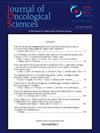Gamification as a Solution for Cancer-Induced Cognitive Impairment
Q4 Medicine
引用次数: 1
Abstract
creased over the past decades.1 This has, in turn, substantially increased the amount of effort required to address the side effects of cancer therapies. Healthcare professionals should proactively adopt strategies to improve the quality of life of cancer survivors and maximize their reintegration into the community and daily work routine after recovery from cancer. A significant challenge that might decelerate or prevent the social rehabilitation of cancer survivors is cancer-induced cognitive impairment, also colloquially known as “chemobrain” or “chemofog.” It has been reported that 10-40% of all cancer patients suffer from cancerinduced cognitive impairment.2 Most importantly, several cancer patients with this complication eventually quit or change their professions; around 30% fail in their previous positions within two years after cancer therapy.3,4 Cancer-induced cognitive impairment can be associated with the disease and its treatments such as chemotherapy, radiotherapy, hormone therapy, and novel anticancer treatments.5-9游戏化作为癌症引起的认知障碍的解决方案
在过去的几十年里,皱巴巴的这反过来又大大增加了解决癌症治疗副作用所需的工作量。医护人员应积极采取策略,改善癌症幸存者的生活质素,并尽量让他们在癌症康复后重新融入社会和日常工作。癌症引起的认知障碍,俗称“化学脑”或“化学雾”,可能会减缓或阻止癌症幸存者的社会康复。据报道,10-40%的癌症患者患有癌症引起的认知障碍最重要的是,一些患有这种并发症的癌症患者最终放弃或改变了他们的职业;大约30%的人在癌症治疗后的两年内失去了原来的职位。3,4癌症引起的认知障碍可能与疾病及其治疗有关,如化疗、放疗、激素治疗和新型抗癌治疗
本文章由计算机程序翻译,如有差异,请以英文原文为准。
求助全文
约1分钟内获得全文
求助全文
来源期刊

Journal of Oncological Sciences
Medicine-Oncology
CiteScore
0.10
自引率
0.00%
发文量
16
审稿时长
29 weeks
 求助内容:
求助内容: 应助结果提醒方式:
应助结果提醒方式:


